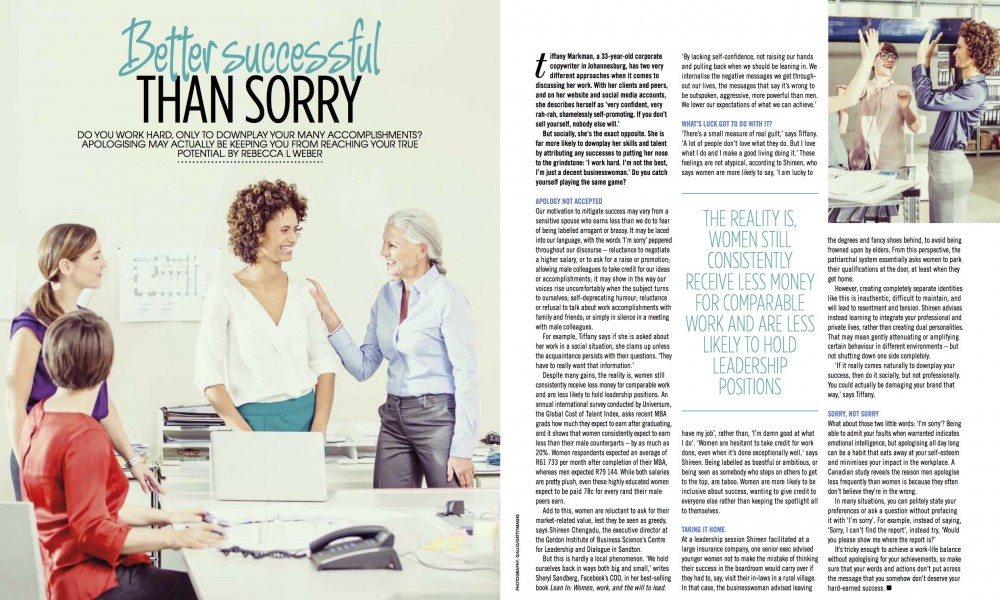Better successful than sorry

I grew up in the US, and to South Africans I sound, as I am told, “very American” (more specifically, as if I’m from the Northeast). But I have picked up some local South African/English usage, such as saying “sorry” when I’m not actually sorry at all, but want somebody to move out of my way.
After 72 hours back in the US, the UK/SAisms are mostly wiped clean by the vigorous reinforcement of US Englishes. (There are an awful lot of Americans in America.) But some extra “sorries” slip in–and often the reply from the receiver is, “Don’t be sorry!” Perhaps they don’t hear “sorry” as a synonym for “excuse me,” and are aghast at the low self-esteem indicated by somebody who would apologize for somebody else hogging the aisle. But maybe they do, and all the same think it’s something to advocate against.
Researching this latest article for Balanced Life, “Better successful than sorry,” made me wish that more research had been done in terms of cultural and regional speech patterns amongst South African women. For starters, many women use English all day at work, even though it’s not their home language–are they more or less likely to use apologetic language than their native tongue counterparts, and how does it compare to speech patterns at home?
At any rate, I grew up both too early and too far from the Valley to use much uptalk, which can be perceived as another indicator of lack of certainty.
You’ve heard plenty of people uptalk? It’s that uplifting intonation at the end of a sentence? Even if the sentence is a statement rather than a question?
A study published in Gender & Society found that women who were more successful were more likely to use uptalk–and that men who uptalked were generally less successful.
However, the subjects were all contestants on the game show Jeopardy!, where the answers are provided as statements, and then players must suggest the questions. (For example, if the monitor displayed “The city where South Africa’s Parliament is located,” a contestant might reply with “Where is Cape Town?”) In other words, the responses themselves are phrased as questions–so we don’t want to extrapolate too much from this otherwise interesting study about women using uptalk when posing a question and its correlation with success.
 Download a free copy of “5 Proven Steps to Writing Queries that Sell.” I hate spam and will never share your info.
Download a free copy of “5 Proven Steps to Writing Queries that Sell.” I hate spam and will never share your info.